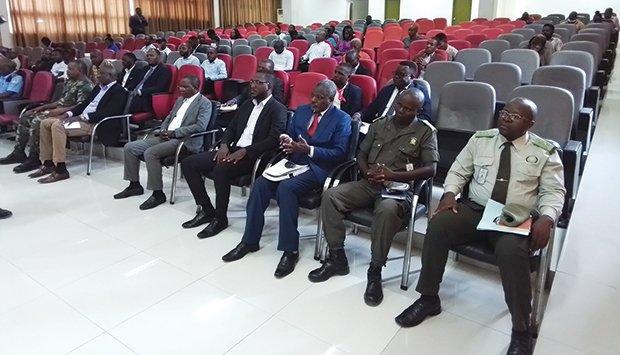Africa-Press – Angola. The criminal liability of public and private managers was debated yesterday in the city of Sumbe, province of Cuanza-Sul, in a lecture held within the framework of the Conference on Criminal Law.
Association (OAA), the lecture aimed to reinforce the proposals of the National Plan for the Prevention and Repression of Corruption, in the process of public consultation, whose act consists of the implementation of prevention mechanisms, fraud detection and corruption in the public and private sectors.
According to the lecturer and director of the Law Research Center (CID), Benja Satula, what is new is the fact that the New Penal Code has extended the concept of civil service, the question of the communicability of the quality of subjects and the possibility for individuals to incur in the crime of corruption, previously reserved for civil servants.
He underlined that non-compliance with the structuring principles of Public Administration and good governance can lead the public manager to incur crimes resulting from the exercise of functions, contained in chapter IV of the Angolan Penal Code (CPA), subject to civil liability.
He added that the public manager’s responsibility can be extended to legal persons: “The set of actions consists of the adoption of codes of conduct, implementation of a plan to prevent corruption risks, the implementation of a whistleblowing channel, specific training of recipients and communication, as well as mass diffusion organs”, he said.
The New Penal Code, which annuls the previous one from 1886, brings notable particularities, emphasized by the penalist, given the multiple specificities. “It is the case of the prohibition of the handling of State values by individuals, so what was an exception in separate legislation, which was not provided for in the 1886 Code, became a rule in the New Penal Code”, he stressed.
Provincial Council of OAA focused on strengthening preventive mechanisms
The chairman of the Council of the Bar Association in Cuanza-Sul, Sidone Augusto da Silva, said that, in recent times, the Angolan State has been reinforcing investment in issues related to ethics, integrity, transparency and the fight against corruption , as a result of the approval of the Plan to Combat Corruption, between 2018 and 2022, by the Attorney General’s Office, with a focus on strengthening legislative matters for the prevention and combat of money laundering, corruption, influence peddling, nepotism, among others .
He recognized that the commitment at the highest level is being reinforced through the Proposed National Strategy for the Prevention and Repression of Corruption, which aims to collect contributions from sectors of society to combat acts of fraud and corruption, whether for the public sector or for the private sector.
“This reality is, without a doubt, one of the most innovative features of the New Penal Code, whose understandings we take from article 9 of the CPA is that this fact leads us to an autonomous responsibility and distinct from the responsibility of natural persons”, he said.
The event was attended by the presiding judge of the Comarca do Sumbe, military prosecutor of the Southern Naval Region, judges and public prosecutors, delegates from the Interior and Justice and Human Rights, members of the Government, directors of the Cabinets of the Government of Cuanza-Sul, SIC and Prison Services, Civil Protection and Firefighters, as well as lawyers and interns.
For More News And Analysis About Angola Follow Africa-Press






